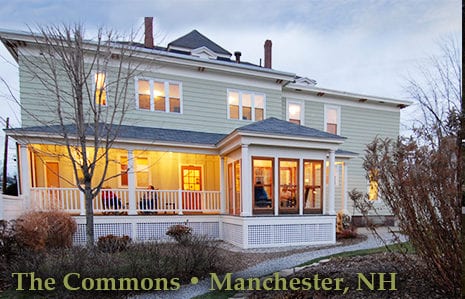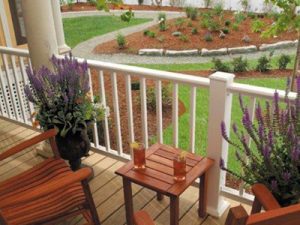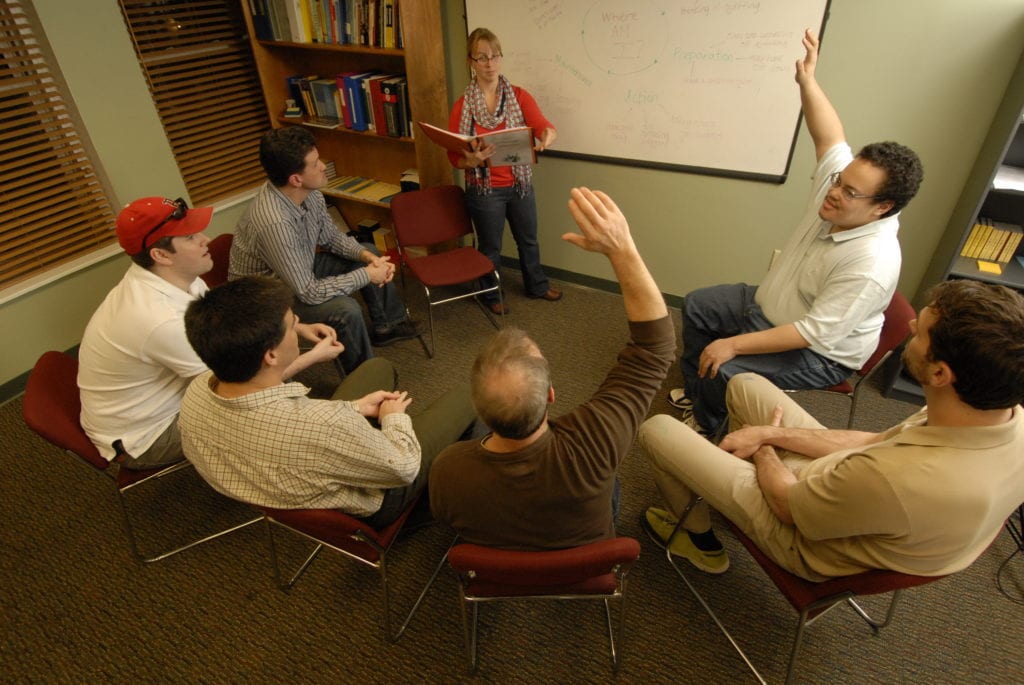
WestBridge’s residential treatment program in Manchester, New Hampshire, helps men with mental illness, with or without co-occurring substance use, to begin or to re-establish healing. We provide an environment that is safe, homelike, comfortable and wellness-oriented.
Entering Men’s Residential Treatment
When men enter our residential program, we establish a sense of safety, through programming intentionally designed to promote a sense of belonging. We provide a high degree of structure and individualized support to men who experience mental illness, with or without co-occurring substance use.
The initial phase of treatment starts with side-by-side support and close observations. On a 24-hour basis, our staff identifies and supports each man’s strengths and challenges with respect to a variety of daily living situations, including: Some of these areas include:
Interacting and connecting with others
• Coping with stress
• Diet and exercise
• Sleep and waking habits
• Self-care
Sample schedule (schedules vary by week and by location).
View Sample Schedule
Progressing Through Men’s Residential Treatment
A battery of assessments are conducted to understand each man’s mental health and substance use history and current symptoms, risks, family and other relationships, physical health, spirituality, and other factors that impacting recovery. All observations and assessments lead to the development of a comprehensive, individualized treatment plan focused on helping a participant achieve his personally established goals.
Men in residential treatment at WestBridge are active in the running and upkeep of the residence, the selection of meal choices, identifying things needing improvement, and in holding each other accountable for behaving in ways that support recovery. We define successful community living as giving and receiving feedback to others, learning to respect and maintain healthy boundaries, taking care of the environment and understanding how our actions affect others.
Living in recovery from mental illness and substance use involves changing unhelpful habits and building a solid, dependable support network, the foundation for which is assembled in our residential program. Men build community – internally and beyond our walls – via our community integration model.
Our programs is located in a metropolitan area with varied educational, volunteer, employment, recreational and self-help resources. As men progress through residential treatment, they are increasingly offered opportunities to expand their community by becoming more active in externally focused areas, while we maintain confidentiality, structure and safety. Men apply the principles of successful community living learned in the residential program, and practice healthy choices that support long-term recovery. We also design individualized transition plans with each participant, which includes support from our Care Management team, and gradual movement toward an independent lifestyle and residence. The average length of stay in our residential program varies, and may run from three to six months based on individual need.
Transitioning into Men’s Community Integration Program
Men who begin in residential treatment often transition into our Community Integration Program (CIP) where they reside in apartments with support from our multi-disciplinary team. (Men may also enter ACT directly, when clinically appropriate).
Our Men’s CIP is based on the evidence-based Assertive Community Treatment (ACT) model. ACT has been found to improve outcomes for people with serious mental illness, with and without co-occurring substance use histories, who are at high risk of psychiatric crises, substance use, relapse, hospitalization, and criminal justice system involvement.
Our CIP program is fully equipped to customize flexible levels of care to support ongoing recovery needs regain increasing independence. Our CIP program offers varying levels of intensity, custom tailored to ongoing individual needs, with services available from two to 30 plus hours per week, and 24/7 support.
Care Managers support our Community Integration Program participants in the areas of housing, finances, employment, symptom management, medical care, addictions counseling, wellness, and family life. They work closely with individuals to ensure a smooth transition while maintaining daily living.







